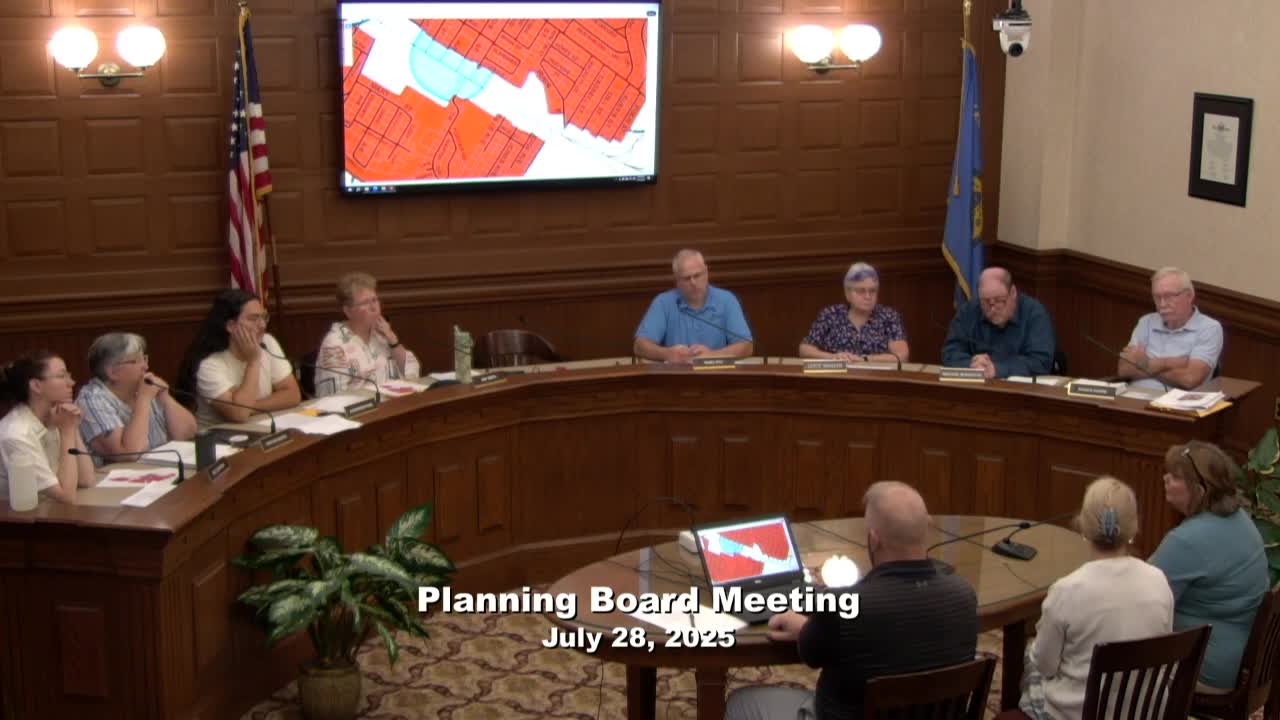Local Clinic Supports Individuals Facing Addiction Without Judgment
August 01, 2025 | Lewiston, Androscoggin County, Maine
This article was created by AI summarizing key points discussed. AI makes mistakes, so for full details and context, please refer to the video of the full meeting. Please report any errors so we can fix them. Report an error »

In the heart of Lewiston, Maine, a recent Planning Board meeting shed light on the vital services provided by local clinics, particularly those addressing addiction and community health. As discussions unfolded, it became clear that these clinics serve a diverse clientele, each with unique stories and needs.
One clinic representative emphasized the importance of confidentiality, noting that individuals often come in anonymously, sharing only what they feel comfortable with. This approach fosters a non-judgmental environment, allowing people from various backgrounds to seek help without fear. The representative highlighted that while many clients face homelessness, others are everyday workers grappling with addiction. This revelation underscores the complexity of addiction, affecting not just marginalized individuals but also those who contribute to the community.
Data collection is a crucial aspect of the clinic's operations, as mandated by state certification. However, participation in this data-gathering process is voluntary, leading to a significant number of clients who choose not to disclose their backgrounds. Despite this, the clinic continues to provide essential services, from needle exchange programs to simple conversations with recovery peers, demonstrating a holistic approach to health and wellness.
As the meeting progressed, it became evident that the clinic's role extends beyond addiction treatment. Many individuals seek support for various reasons, including mental health and community connection. The representative noted that some clients come not for needles but for the supportive atmosphere and the opportunity to talk with someone who understands their struggles.
The discussion concluded without a formal vote or motion, but the insights shared painted a vivid picture of the challenges and triumphs faced by those seeking help in Lewiston. As the community continues to navigate these complex issues, the commitment to providing compassionate care remains a cornerstone of local health initiatives.
One clinic representative emphasized the importance of confidentiality, noting that individuals often come in anonymously, sharing only what they feel comfortable with. This approach fosters a non-judgmental environment, allowing people from various backgrounds to seek help without fear. The representative highlighted that while many clients face homelessness, others are everyday workers grappling with addiction. This revelation underscores the complexity of addiction, affecting not just marginalized individuals but also those who contribute to the community.
Data collection is a crucial aspect of the clinic's operations, as mandated by state certification. However, participation in this data-gathering process is voluntary, leading to a significant number of clients who choose not to disclose their backgrounds. Despite this, the clinic continues to provide essential services, from needle exchange programs to simple conversations with recovery peers, demonstrating a holistic approach to health and wellness.
As the meeting progressed, it became evident that the clinic's role extends beyond addiction treatment. Many individuals seek support for various reasons, including mental health and community connection. The representative noted that some clients come not for needles but for the supportive atmosphere and the opportunity to talk with someone who understands their struggles.
The discussion concluded without a formal vote or motion, but the insights shared painted a vivid picture of the challenges and triumphs faced by those seeking help in Lewiston. As the community continues to navigate these complex issues, the commitment to providing compassionate care remains a cornerstone of local health initiatives.
View full meeting
This article is based on a recent meeting—watch the full video and explore the complete transcript for deeper insights into the discussion.
View full meeting
